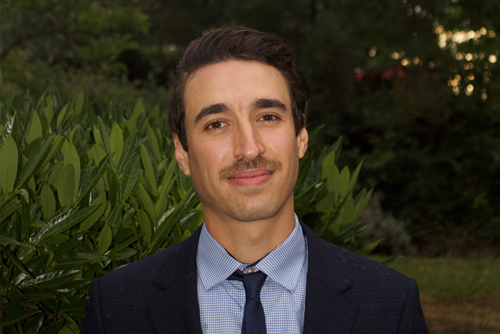
One major consequence of ecological disruptions and climate change is to make our future more and more uncertain, and societies face the challenge of moving toward a greener and sustainable economy. This raises a number of scientific challenges: among others, it is important to appropriately define and assess environmental risks, to understand how individuals behave in such situations, and to analyze how innovative financing and investment strategies might help societies address environmental changes.
This research group tackles these challenges by relying on research expertise in environmental economics, experimental economics, econometrics and finance. In particular, our research combines theoretical and experimental methods, option value theory, optimization under uncertainty and laboratory experiments.
Research works are focused on two main priorities. The first one is related to the problem of risk modeling. The aim is to analyze mitigation, prevention and adaptation behaviors in risky environments in order to understand how to deal with major environmental risks. The second priority focuses on the potential of investment and financing strategies to address environmental challenges. Different issues are analyzed, such as the impact of firms’ corporate social and environmental responsibility strategies, or the price dynamics in environmental markets.
Recherche
Doctorant & post-doctorants
Appui
Flood risk information release: Evidence from housing markets around Paris
An Economic Analysis of a Storage Policy After a Storm Occurrence in Forestry
Common-pool resource management and risk misperceptions
Hard vs. soft commitments: Experimental evidence from a sample of French gamblers *
I see sick people: Beliefs about sensory detection of infectious disease are largely consistent across cultures
Does improving diagnostic accuracy increase artificial intelligence adoption? A public acceptance survey using randomized scenarios of diagnostic methods
High prevalence of long-term olfactory disorders in healthcare workers after COVID-19: A case-control study
Giving a Voice to Patients With Smell Disorders Associated With COVID-19: Cross-Sectional Longitudinal Analysis Using Natural Language Processing of Self-Reports
Depth of reasoning in the 11-20 game differs between financial professionals and students. A lab-in-the-field experiment
Perception of unfamiliar caregivers during sickness – Using the new caregiver perception task (CgPT) during experimental endotoxemia
Optimal lockdown and vaccination policies to contain the spread of a mutating infectious disease
Consumer impatience: A key motive for Covid-19 vaccination
Contribution of perceptions to the acceptability of adaptation tools to sea level rise
Uncertainty-driven symmetry-breaking and stochastic stability in a generic differential game of lobbying
Does pollution perception lead to risk avoidance behaviour? A mixed methods analysis
Olfactory Cues of Naturally Occurring Systemic Inflammation: A Pilot Study of Seasonal Allergy
Assessing sickness behavior in the French: Validation of the French translation of the sickness questionnaire (SicknessQ) in a non-clinical French population
Discriminating between sick and healthy faces based on early sickness cues: an exploratory analysis of sex differences
Does age affect the relation between risk and time preferences? Evidence from a representative sample
The walking sick: Perception of experimental sickness from biological motion
Risk aversion in renewable resource harvesting
Portfolio instability and socially responsible investment: Experiments with financial professionals and students
The effect of the 7R allele on the DRD4 risk tolerance locus is independent of background risk in Senegalese fishermen
- Funding : ADEME
- Duration : 2021 – 2025
- Contact : LAVAINE Emmanuelle
Fine particles (PM) in air pollution, which penetrate deep into the bronchi and, in the case of the finest particles, can pass into the bloodstream and reach other organs, could play an important role in the severity of symptoms of COVID-19. The main contribution of this project is to identify the impact of a high concentration of PM pollution on mortality from COVID-19 and hospitalisations for COVID-19 with comorbidities. To do this, the project proposes a spatial and temporal analysis using innovative econometric techniques. In order to isolate the causal effect of a potential increase in PM concentration in certain areas on mortality due to COVID-19, the most relevant method is to examine the differences in impact of variations in PM concentrations on mortality and morbidity due to COVID-19, in different communes, before, during and after the confinement period. This objective will be achieved in particular by comparing groups that have been affected differently by this exogenous variation in PM pollution in France.
The Air-COV project is based on the use of panel mortality data (weekly and communal) available for France in 2020 and spatialised daily PM concentration data. Collaboration between economists, epidemiologists and atmospheric modelling engineers is being strengthened in this project in order to provide precise estimates of the benefits of reducing health symptoms associated with reducing environmental risks.
- Funding : ORA-Plus framework by the French National Research Agency (ANR), the Netherlands Organizations for Scientific Research (NWO), German Research Foundation (DFG), Japan Society for the Promotion of Science (JSPS )
- Duration : 2016 – 2019
- Contact : WILLINGER Marc
The project aims to analyze the effects of macroeconomic policies, both monetary and fiscal, regulations related to information disclosure, and introduction of financial instruments within analytical frameworks that are based on more realistic behavioral foundations.
We will conduct research both at the individual and collective levels by combining laboratory experiments, computational experiments, and mathematical modeling, while paying a close attention to how individual decisions are aggregated into collective outcomes how collective outcomes feedback into individual decisions.
- Funding : MITI, CNRS
- Duration : 2023 – 2024
- Contact : LAVAINE Emmanuelle
The main contribution of this project is to identify the causal impact of exposure to concentrations of a mixture of several air pollutants on health (via hospital admissions and mortality). This project proposes a spatial and temporal economic analysis using innovative econometric techniques. Most studies assess the effect of air pollutants without considering interactions with other pollutants. As the composition of the mixtures to which populations are exposed depends on the sources of pollutant emissions and the interactions between pollutants, we propose to identify a measure of population exposure to cocktail pollution discriminated by type of source (agriculture, traffic, etc.), taking account of urban spatial heterogeneities. The pollutant concentrations will then be matched with health data in order to assess the health impact of simultaneous exposure to multiple air pollutants. We will therefore assess the effects of pollutants on health as a function of the source of emissions and the mix of pollutants present in the atmosphere.
- Funding : ANR (Agence National de la Recherche) ANR Flash Covid-19 and Région Occitanie
- Duration : 2020 – 2022
- Contact : WILLINGER Marc
The CONFINOBS project seeks at identifying the determinants of the propensity to adopt and follow the recommendations of prevention and containment with respect to the spread of Covid-19 virus. The basic premise is that this propensity is determined by individuals’ personal characteristics of the individual: their risk-preferences, impatience, self-control and social preferences (e.g., altruism, generosity, trust and cooperativeness). The main objective is to identify the effect of these behavioral dimensions on compliance with containment measures and adoption of barrier gestures. Their knowledge is an essential prerequisite for designing more effective non-coercive instruments, such as monetary and non-monetary incentives (nudges), to better target communication during and after the crisis, and to increase its impact on behavior.
The project combines several experimental tools which allow to precisely measure the different behavioral dimensions (e.g., risk aversion, impatience, altruism or trust) based on incentivized tasks. Some measures, including risk preferences, will be doubled by declarative measures and genotyping, in order to provide converging evidence of the robustness of the main determinants. We further implement a discrete choice experiment (DCE) to document individuals’ willingness to comply with the binding measures. We also test the effectiveness of a “nudge” that was designed to encourage individuals to comply. Our results will be used to determine the right levers of actions for effective communication towards target audiences, with a view to, for example, adopt the observance of barrier gestures.
- Funding : ANR-DFG
- Duration : 2020-2024
- Contact : QUEROU Nicolas
Renewable natural resources are under constant threat of overuse, especially if (i) of common pool nature, and (ii) mobile, as resource users have strategic incentives to extract more than the socially efficient amount. Two prominent and still unresolved cases in Europe are overfishing and overuse of groundwater resources. New, scientifically sound policy approaches are needed, as these resources face changing and increasing risks: On the one hand, climate change will alter volatility in the regeneration of the resource as well as potential tipping points in its dynamics of movement. On the other hand, patterns of resource use shape risks and thus lead to ‘endogenous risks’. Research on these issues so far focused on rational, risk-neutral actors – an assumption in sharp contrast to evidence from behavioral economics. CRaMoRes sets up a new theory and model, considering different types of individual behavior under risk, including risk aversion and state-dependent risk preferences. We study how changes in climate forcing and endogeneous risks affect the strategic incentives for resource (over-) use of mobile common pool resources. CRaMoRes analyzes and proposes new, adaptive policy approaches, including rights-based, market-based, and information-based management. To assess the distributional consequences of changing risks, we use recently developed criteria of social evaluation in risky situations. CRaMoRes will experimentally test the implications of different policy approaches in the lab. We quantify and test the newly conceived policy approaches for two case studies: the Baltic fishery and the Upper Rhine aquifer.
- Funding : Fondation MAIF
- Duration : 2019-2022
- Contact : ERDLENBRUCH Katrin
Floods cause major damage and disruption around the world. However, more and more people choose to settle in flood-prone areas in order to benefit from natural or urban amenities and lower property prices.
The main objective of the project is to understand the effect of information about floods on households’ residential choices, taking into account the trade-offs that households make between amenities and flood risk. The project is carried out in seven municipalities along the Mediterranean arc in France, and contains a survey of 700 households.
1) In a first axis, we estimate the price differential in flood-prone and non-flood-prone areas, taking into account the natural and urban amenities of the areas as well as information on floods.
2) In a second axis, we carry out a Choice Experiment, and assess the values of risks and amenities in the choice of residence, considering the individual characteristics of the respondents.
3) In a third axis, we evaluate the effectiveness of different information policies regarding floods. In particular, we study the effect of additional information disclosure (containing the description of concrete consequences of floods), and the effectiveness of two existing policies, flood risk prevention plans (PPRi) and buyer-tenant information (IAL).
The project is carried out in collaboration with UMR BETA (Nancy, France).
- Funding : ANR (Agence Nationale de la Recherche)
- Duration : 2020 – 2023
- Contact : COURTOIS Pierre et MAGDALOU Brice
The impacts of future climatic conditions on agriculture and marine fisheries are expected to be widespread, complex, geographically variable, and mostly unfavorable, particularly in tropical countries where human development and health are of serious concern. Here we hypothesize that coastal towns and villages close to marine protected areas (MPAs) can better alleviate poverty in the context of land desertification than their counterparts without any management action on nearby marine ecosystems. We propose to test the link between biodiversity protection and economic development over a long time period (up to 20 years) by combining the most up-to-date (i) spatially gridded socioeconomic information, (ii) satellite imagery analyses, (iii) artificial intelligence and (iv) in situ observations in developing countries of the Mozambique channel.
- Funding : French Research National Agency ANR-17-CE02-0011
- Duration : 2017-2019
- Contact : WILLINGER Marc
Humans have colonized diverse environments so that specific genes, providing adaptation to each environment, are highly likely to have locally evolved (such as adaptation to high-altitude hypoxia).
These genes provide adaptation to a local, or specific, environment through a permanent physiological change or, alternatively, a behavioural change. Numerous genes are known to influence behaviour in experimental settings, such as alleles at the dopamine receptor locus D4 (DRD4), which is associated with attitudes toward risk.
However, direct evidence of selection acting on such genes is, to date, lacking. Active volcanoes and their exposed populations represent unique assets in the study of the roots of such adaptation responses.
The aims of this project are thus to: 1) study risk-taking people behaviour across contrasting environments, both at-risk and (almost) without risk; 2) examine the possibility of a local adaptation to risky environments; and 3) identify all relevant selected genes involved in this local adaptation.
The at-risk environments considered are flanks and surrounding plains of hazardous, active volcanoes, on which stable rural groups have developed.
- Funding : Swedish Research Council
- Duration : 2021-2025
- Contact : TOGNETTI Arnaud
Historically, infectious diseases have been one of the most deadly threats to human survival.The current outbreak of COVID-19 clearly demonstrates the societal impact of diseases and the importance of individuals avoiding infection by avoiding physical contact with sick individuals, especially if they show symptoms of illness.
- Funding : Fondation de France
- Duration : 2022 – 2024
- Contact : ERDLENBRUCH Katrin
The national strategy for coastline management advocates “spatial recomposition” to adapt to the effects of rising sea levels and sea flooding. Such a policy requires a broader vision of land-use planning, including risks, for which adaptive trajectories and progressive public actions may be useful.
The objective of this project is to study the applicability of a progressive public action for the management of coastal areas. In the first axis, we will co-construct dynamic adaptive policy pathways with coastal managers, taking into account the constraints of their working context. In the second axis, we will analyze how residents perceive the trajectories of progressive public action and how they make individual trade-offs in this context. Overall, the project will study the relevant time horizon to be taken into account and the management sequences to be chosen for an operational and acceptable progressive policy. A third axis is dedicated to several educational activities for students as well as coastal managers.
The project is conducted in three French regions: Nouvelle Aquitaine, Occitanie and Provence-Alpes-Côte d’Azur. It is carried out in collaboration with UMR CEPEL (Montpellier, France), UR ETTIS (Bordeaux, France) and UMR ESPACE (Marseille, France).
























